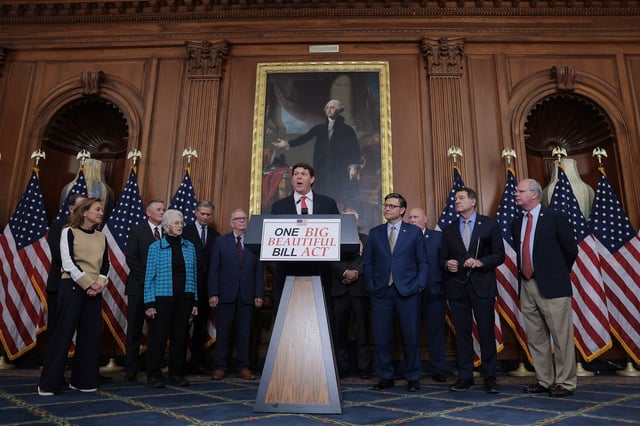Overview
- Senate Republicans have begun debating the budget package, but their slim majority means a loss of more than three GOP votes would kill the measure.
- The legislation cuts $700 billion to $800 billion from Medicaid over ten years and imposes an 80-hour-per-month work, education or community service requirement that experts say could remove 7.7 million to 14.4 million people from coverage.
- Health policy analysts warn these cuts may increase mortality rates, delay disease diagnoses and force hundreds of rural hospitals to close.
- Economic assessments project up to $113 billion in lost state GDP, more than a million job losses in healthcare and related industries, and higher costs for privately insured patients to offset revenue shortfalls.
- Republicans in the White House and Congress hail the measure as the largest welfare reform in U.S. history, while Democrats argue it favors wealthier Americans and endangers care for vulnerable populations.



